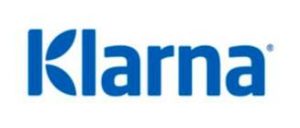 Klarna is the First Major European Fintech to Receive a Full Banking License
Klarna is the First Major European Fintech to Receive a Full Banking License
When Klarna’s three founders presented their digital invoicing idea to the cream of Swedish industry and the country’s king in 2005, they suffered rejection. “Look, this is never going to work; the banks are going to do this,” Klarna’s chief executive, Sebastian Siemiatkowski, remembers as the message of the jury — consisting of a member of the Wallenberg family and Hennes & Mauritz’s chairman among others. As a self-described “cocky” 23-year-old, Mr Siemiatkowski did not take the knock-back too seriously, but instead thought: “One day, we will be a bank.”
That day came on Monday, June 19th 2017, when Klarna finally received its banking licence, 12 years after the spurning of its idea at the Stockholm School of Economics.
 In the meantime, Mr Siemiatkowski has made Klarna into one of Europe’s largest fintechs — valued at $2.25bn in 2015 — through its “Buy now, pay later” idea: allowing people to pay for online goods after receiving them. Klarna takes on the credit risk for retailers in return for a part of the sales price.
In the meantime, Mr Siemiatkowski has made Klarna into one of Europe’s largest fintechs — valued at $2.25bn in 2015 — through its “Buy now, pay later” idea: allowing people to pay for online goods after receiving them. Klarna takes on the credit risk for retailers in return for a part of the sales price.
Through that concept, Klarna has conquered online shopping in the Nordics and Germany, dealing with 60m customers. Rare for a fintech company, it is also making money, with an operating profit of SKr138m ($16m) in the first quarter on revenues of SKr992m.
The move by Klarna to establish a bank — likely to offer customers payment cards and accounts, but not mortgages — increases the competition for existing lenders, although they are not overly concerned by the new challenger. One problem some fintechs have when entering banking is a lack of trust because of low public visibility. But Klarna is well known in northern Europe through its role as a payment option on numerous websites, and it is trying to crack the UK and US markets as well.
About: Klarna is a Swedish payment service provider offering payment solutions in the area of e-commerce . The core service is to take over the payment claims of the dealers and to process their customer payments and thus to exclude risks for buyers and sellers. About 20 per cent of all online purchases in Sweden are concluded via Klarna. Klarna has approximately 1400 employees (2016) and offers its payment solutions in 18 countries (2015). Klarna transacts Klarna’s annual transactions worth about € 6.1 billion over the 65,000 traders that offer Klarna. In 2010, Klarna generated a turnover of 38 million euros per year. In Germany, Klarna has branches in Cologne and Berlin. In Austria, Klarna has a branch office in Vienna.
Source: Financial Times






















